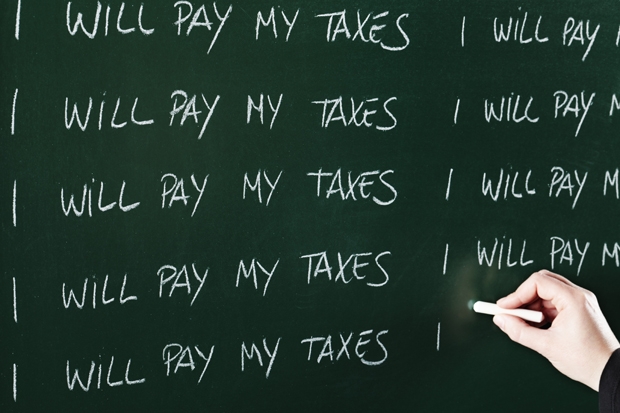On the face of it, the moral case against tax avoidance seems pretty straightforward. If you’re a UK taxpayer and benefit from public goods and services, then you should pay your fair share of tax. If you’re paying less than that, then you’re a free rider. You’re breaking the social contract.
But what do we mean by ‘fair share’? The standard defence of tax avoidance is that it’s perfectly legal — if it wasn’t, it would be tax evasion — and the social contract only obliges people to obey the law, not to pay more tax than they have to. To maintain that people are morally obliged to pay an additional amount of tax, over and above what they’re legally required to pay, is a tricky position to defend.
For one thing, it means we’re all guilty of tax avoidance. I’m not just thinking of people who buy whisky in duty free or take out an Isa. If the ‘fair’ rate of tax is higher than the actual rate, and anyone not paying the ‘fair’ rate is ‘dodgy’, then everyone who fails to make a voluntary donation to HMRC on top of their annual tax bill is at fault.
More fundamentally, where does this obligation come from? A common argument made by those who think rich people should pay more tax than the legal minimum is that they benefit disproportionally from things like the rule of law, particularly when it comes to the protection of their property. But if you calculate that benefit, it’s likely that Britain’s multi-millionaires are paying more than their fair share. After all, the top 1 per cent of income earners pay roughly 25 per cent of the total income tax take but don’t consume a quarter of public services.









Comments
Join the debate for just £1 a month
Be part of the conversation with other Spectator readers by getting your first three months for £3.
UNLOCK ACCESS Just £1 a monthAlready a subscriber? Log in